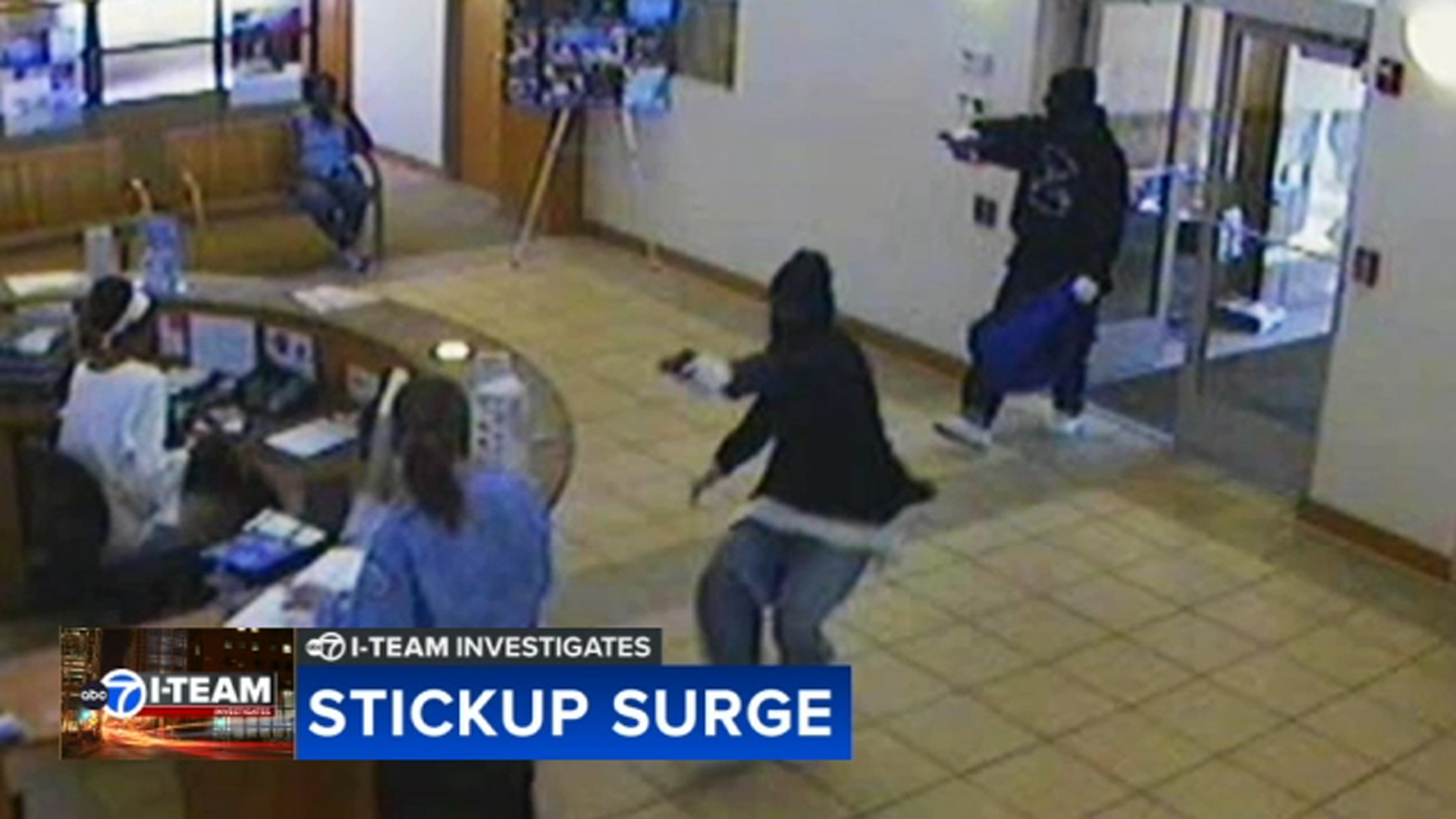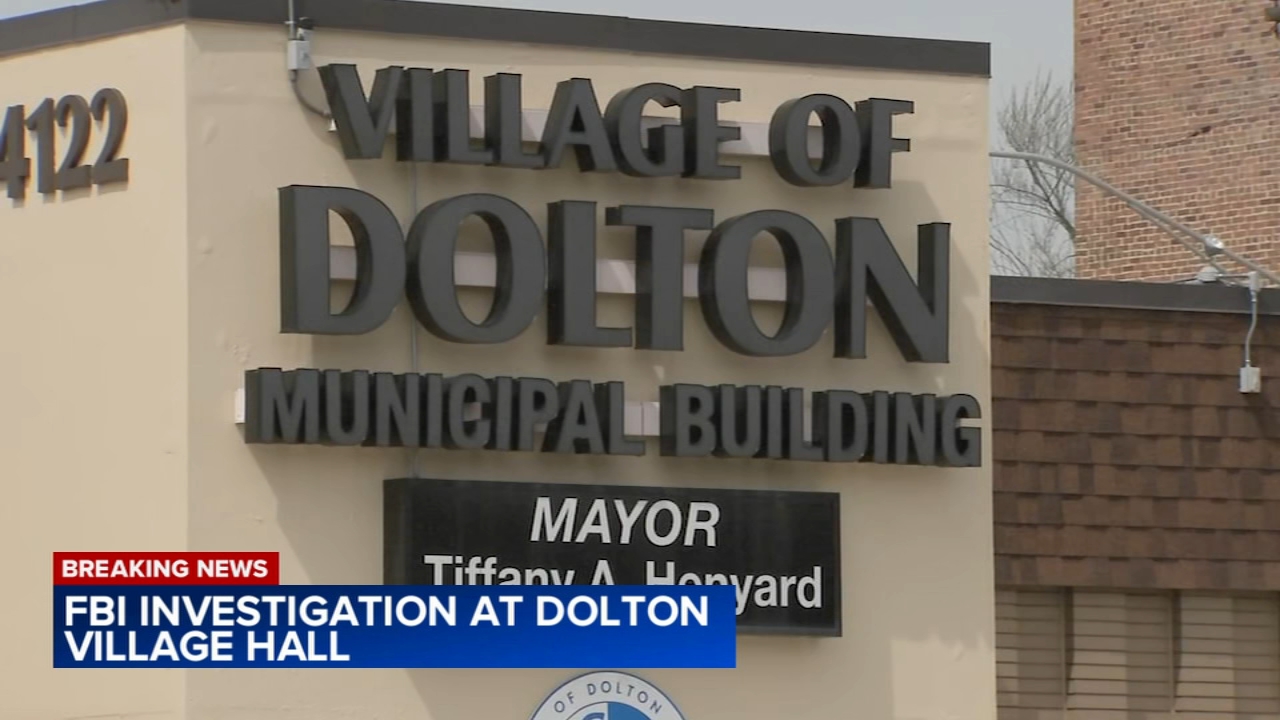Suburban woman's arrest raises concerns about how police treat mentally ill
What police in south suburban Dolton did, and didn't do, during and after the arrest of a woman on minor charges is now raising questions about how arrestees with mental illness should be handled.
The suburban woman was a customer in a fast food restaurant and involved in a dispute with employees. Much of interchange with police was recorded on officer bodycams, one of which was obtained by the ABC7 I-Team.
It started with a police call for an out-of-control customer at a fast food restaurant in Dolton.
The incident and her arrest happened less than two weeks ago, on a snowy Halloween afternoon in Dolton. The arrest attracted no attention at the time.
"She got my order wrong. She spit in my food," the customer told responding officers.
They took the customer into custody on charges of battery and damage to property, for allegedly throwing an employee's phone.
After being put into a police vehicle, the woman told her arresting officer "I'm mentally ill," to which the officer asked, "What kind of mental illness do you have?"
She told police she was bipolar and on medication. The I-Team has decided not to use her name or show her.
On the way to Dolton's police station she became emotional and more agitated, kicking and hitting the back seat of the officer's vehicle.
On several occasions the officer yelled at her to stop.
Once at Dolton headquarters, they walked her inside and removed the handcuffs, but as police filled out paperwork she grew angrier.
"It's my word against their word, I'm never going to be right," she said. And things went downhill from there.
At one point, she removed her shirt and is seen wrapping it around her neck, tightening the shirt as if to simulate hanging.
"No, no, NO! She's hangin' herself!" said one officer. As he moved in to help the woman, he is seen to be held back by Dolton Deputy Police Chief Lewis Lacey.
"What I want you to do...hold on. She's trying to choke herself out. She'll just pass out, she'll be fine," Lacey is heard to say.
Then an officer asked if he could help her. Deputy Chief Lacey replied, "No not yet," and told her to put her clothes back on.
"You're just going to pass out baby and then you'll start breathing," Lacey told the woman.
About 10 seconds later she began calming down; and in a half-minute she was putting on a sweatshirt. She didn't pass out.
"Let her choke herself? Certainly, obviously, not OK by any standard," said civil rights attorney Amanda Antholt with the disability advocacy organization Equip for Equality.
"That comment, which is completely callous and dangerous. It showed a real disregard for her and her person that we saw throughout this entire video," Antholt said.
"It was appropriate for the senior officer to tell the responding officer not to touch her and to kind of gently make some space," she added.
Even though Deputy Chief Lacey told the arrestee that she was "just going to pass out baby and then you'll start breathing," Lacey later explained his comment to the I-Team.
"I know she couldn't let herself pass out," Lacey said. "I knew that what would end up happening is she would end up just bringing the shirt down like she did and then she would stop."
When asked by investigative reporter Chuck Goudie how he knew that, Lacey said, "From my experience as far as being a police officer. I've seen somebody attempt to- when I say choke themselves- pull their shirt over their neck and then let it down. And that's exactly what she did."
Dolton Police Chief Ernest Mobley told the I-Team that his command staff will now review how the incident was handled.
The I-Team asked a civil rights attorney and a mental health expert to look at the police bodycam video.
"When I watch a video like that and I see anyone being treated in a way, that feels unfair or not best practice, as a mental health advocate it's heartbreaking," said Alexa James, executive director of the National Alliance on Mental Illness Chicago.
"The police did not arrive when she was in a state of crisis," said Antholt. "They actually escalated her to the point of crisis."
Both experts said this incident suggests additional training could helpful.
"If somebody feels hopeless and out of control to the point where they are threatening and attempting suicide in front of law enforcement, our understanding is that woman should've been transported by way of paramedics or the police for a suicide assessment" said James.
Goudie asked deputy chief Lacey if there could have been a better way to handle the woman; either helping her or putting her back in handcuffs to prevent her from hurting herself.
"Well you got to understand she was already acting in an irrational manner," Lacey said. "So continually trying to restrain her, because she was actually coming down, whatever was going on with her would probably have been worse than continuing to try to detain her."
After refusing medical attention, the woman was released from custody. She is still charged with battery and criminal damage to property from the restaurant incident and has a court date next month. The I-Team spoke with her at her home, and she said that the way she was treated is not how anyone should be treated by police.
Click here for more information about Equip for Equality.
Click here for more information about National Alliance on Mental Illness Chicago.








